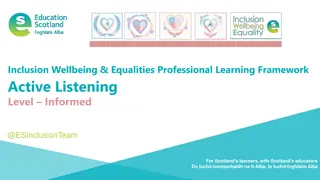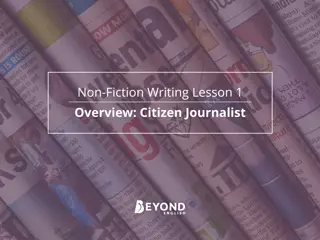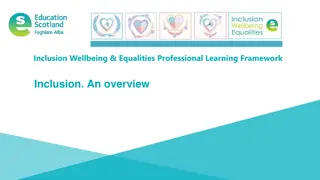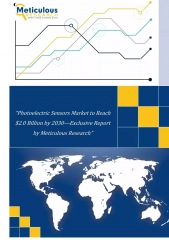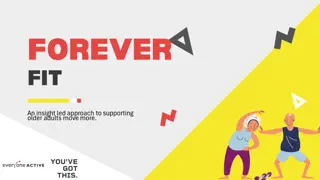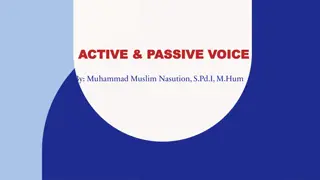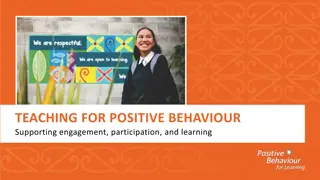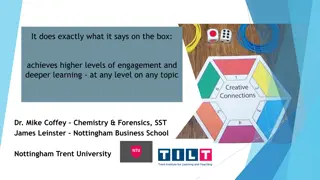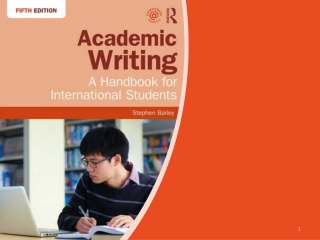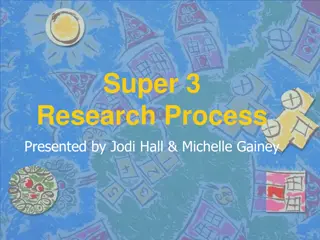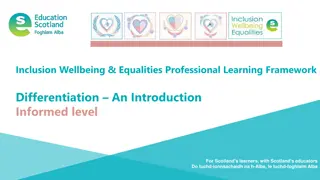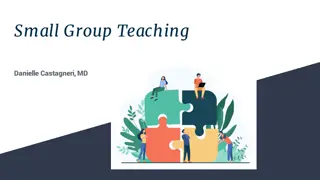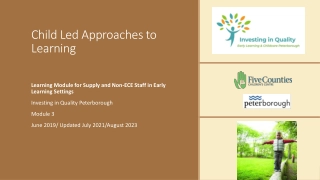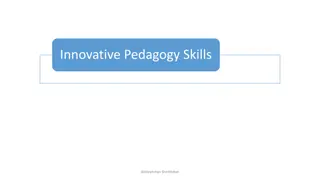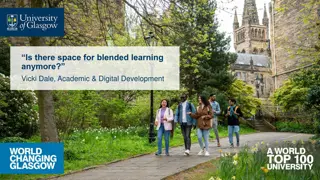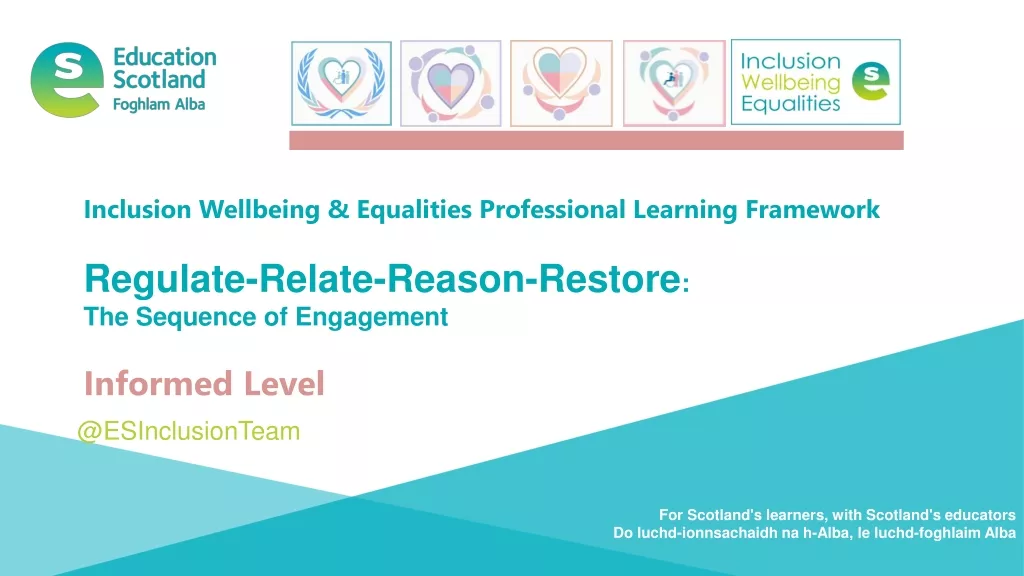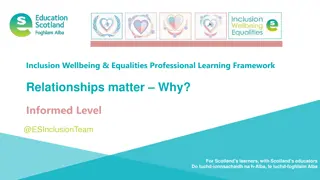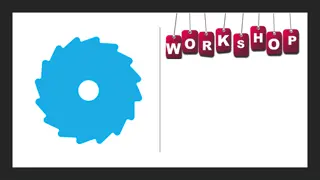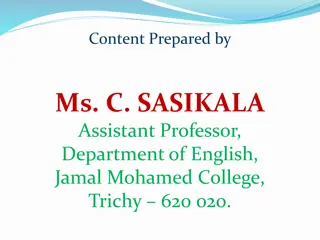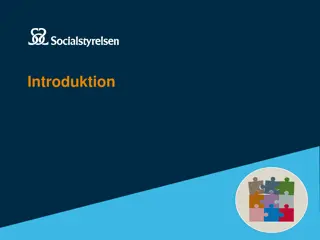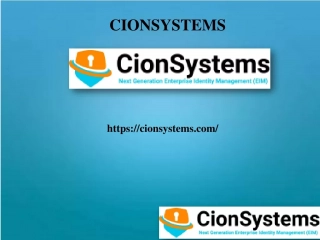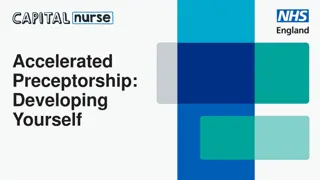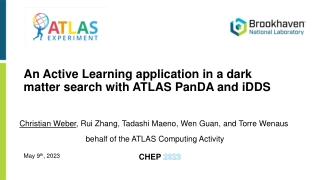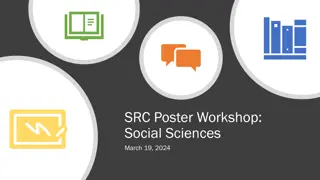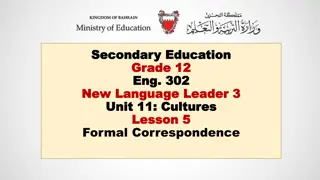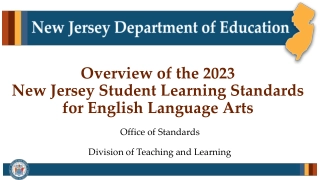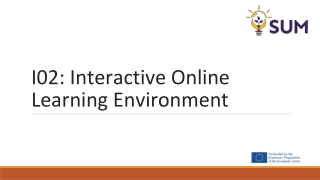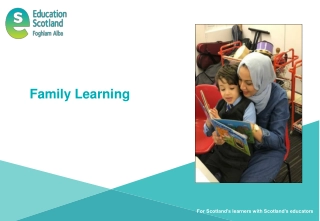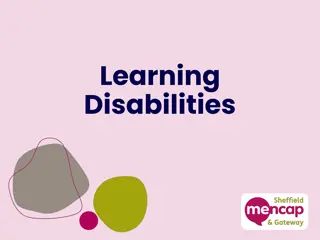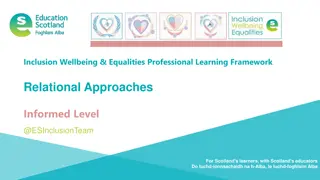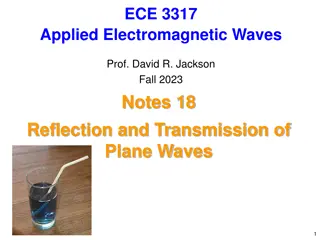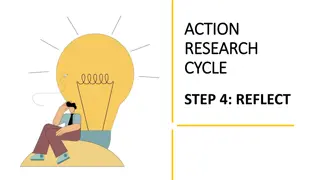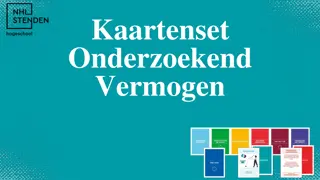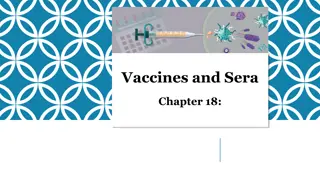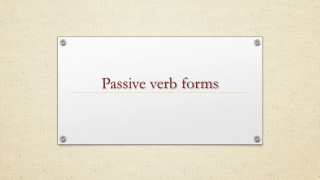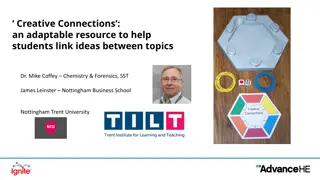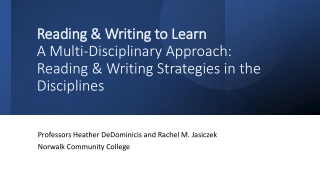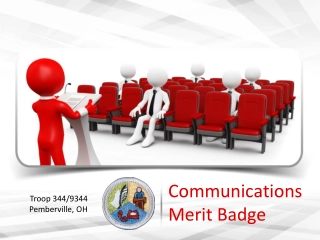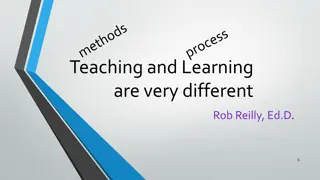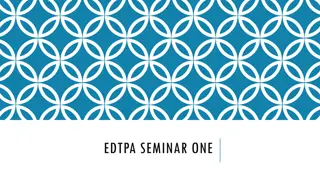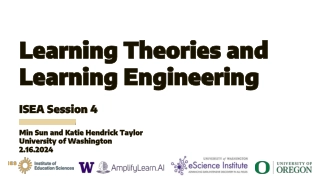ACTIVE LEARNING Reflection and reflective writing
Explore the concepts of active learning, reflection, and reflective writing in education. Learn how reflection enhances problem-solving skills, flexibility in learning, and self-improvement. Discover the benefits of reflecting, the process of reflection, and how to apply active learning strategies effectively.
ACTIVE LEARNING Reflection and reflective writing
PowerPoint presentation about 'ACTIVE LEARNING Reflection and reflective writing'. This presentation describes the topic on Explore the concepts of active learning, reflection, and reflective writing in education. Learn how reflection enhances problem-solving skills, flexibility in learning, and self-improvement. Discover the benefits of reflecting, the process of reflection, and how to apply active learning strategies effectively.. Download this presentation absolutely free.
Presentation Transcript
ACTIVE LEARNING Reflection and reflective writing
This session will cover Active learning and reflection What is reflection? The benefits of reflecting The reflective writing What does reflective writing look like? Examples
How to apply active learning into practice? Provide opportunity to think hard, reflect their learning Choose strategies that can engage every learner actively into the learning
The simplification of active learning Intentional learning Consequential learning Mindful learning Engaged learning Reflective learning
What is reflection? Reflection is a basic part of teaching and learning. Reflection is an active process of learning and is more than thinking or thoughtful action. Reflection makes sure all students learn more effectively as learning can be tailored to them.
What is reflection? Reflection is one of the simplest but effective strategies that enhances ability to solve problems, find new solutions, and become more flexible with their learning. Reflective practice is learning through and from experience towards gaining new insights of self and practice (Finlay, 2008) When we reflect, we develop, and expand our knowledge and improve our practices.
What is reflection? The process of reflection is cyclical and has a number of phases: - carefully considering the activity, event - identifying any problems/issues/ strengths - identifying what you learned from lesson, experience - deciding on actions you will take to address this in the future Reflective thinking leads to reflective writing Adapted from Gibbs 1998: Kolb 1984
The benefits of reflecting - to identify any barrier to learning - to develop abilities to solve problems - to understand what your strengths are - to share thoughts and feeling on learning - to develop an understanding of different perspectives - to help focus on the learning process so learning outcomes will improve
Reflective writing Reflective writing usually involves the process of thinking and learning, and it is therefore not necessarily clearly ordered. Reflective writing often involves weaknesses as well as strengths and successes. It is often useful to reflect forward to the future as well as reflecting back on the past.
What does reflective writing look like? In reflective writing, you state your personal experiences, emotions, and opinions. Thus, you usually use subjective, personal language i.e. 1st person writing. The actions in this part are often expresses as feelings or thoughts e.g. felt, experienced, wondered etc In the reflection, the language is often modified by words like may , and perhaps .
Reflective writing model What? So what? Now what? What? What happened? Describe the experience who, what, why, when, where? So what? What have you learnt from this? Why does it matter? What has been the impact on you? In what way? Why? You can include connections to coursework, current events, past experiences. Now what? What are you going to do as a result of your experience? How will you apply what you have learnt in the future? Are there critical questions to further pursue? Make an action plan of what you will do next. .
Example Student book XII, Module I Study and Work, Unit 3: Jobs and Society As a teacher, you should ask your students to write reflective writing after teaching the lesson Jobs and Society . Encourage students to do exercise 1b on page 46 about soft skills And then ask students to read article on exercise 2a titled Artificial Intelligence: Does it mean boom or doom for your career? . Then you can give some time for students to think hard about their skills, future jobs, their career choices and then ask them to write reflective writing according to the questions of Reflective writing module: What? So what? Now what?
Example Today s class about the importance of soft skills and the influence of technology on workforces was so interesting and thought-provoking lesson for me as it provided me an opportunity to rethink my future career. As a twelfth-grade student, I am in the position of choosing my future career as it is an important issue for me. The article ' Artificial Intelligence: Does it mean boom or doom for your career? was so interesting as it helped me to think about the influence of technology on workplaces [1]. While I was reading the article, I was thinking about the soft skills that I believe I have developed well and the soft skills I have to improve to survive in this technological world. [2]. I realized that soft skills including communication, creativity, and interpersonal cannot be replaced by robots so those are the skills I have to sharpen. As a student who likes to solve math problems, I mostly prefer sitting alone. However, now I realize that communicating with others, initiating innovations, and adapting to new situations are more valuable skills that help me to compete with robots. Therefore, I reflect I have to rethink my career choice and discuss it with my parents. I have to improve more communication and leadership which will never be replaced with technology [3]. 1. What? 2. So what? 3. Now what?
Useful verbs - believe - embrace - challenge - emerge - realize - encounter - alter - highlight - confirm - identify - recognize - perceive - adapt - ponder - desire - reconcile
Useful feeling words - amazed - passionate - satisfied - intrigued - fortunate - absorbed - delighted - engrossed - thankful - inspired - ecstatic - rebellion - energetic - transformed - provocative - disgruntled
Personal reflection Write a short reflection piece about something personal that you have experienced in your life, that has changed the way you are or way you: - think - feel - act - experience in your personal or professional life today.
Conclusion Reflective writing can be very powerful. It can be: - deep (showing extent of knowledge) - evocative (appealing to senses and emotions) - thought provoking (showing integration & innovation) - creative (thinking outside the box) - critical (showing independent though) and very interesting to read!
Reflection in practice Watch the video provided below https://www.youtube.com/watch?v=b1eEPp5VSIY .
Reference Gibbs, G. (1988), Learning by Doing: A guide to Teaching and Learning Methods, Oxford Centre for Staff and Learning Development, Oxford Brookes University, London Moon, J (1999) Reflection in Learning and Professional Development, Moon, J (1999a) Learning Journals: a Handbook for Academics, Students and Professional Development, Kogan Page, London Brookfield, S. (1995) Becoming a Critically Reflective Teacher. San Francisco: Jossey- Bass. Hatton, N. and Smith, D. (1995) Reflection in teacher education: Towards definition and implementation. Teaching and Teacher Education, 11(1), pp.33-49. Moon, J. (1999) Reflection in Learning and Professional Development. London: Kogan Page. Sch n, D. (1994) The reflective practitioner: How professionals think in action. Ashgate Publishing Limited. Williams, K., Woolliams, M. and Spiro, J. (2012). Reflective writing. Houndmills, Basingstoke, Hampshire: Palgrave Macmillan


